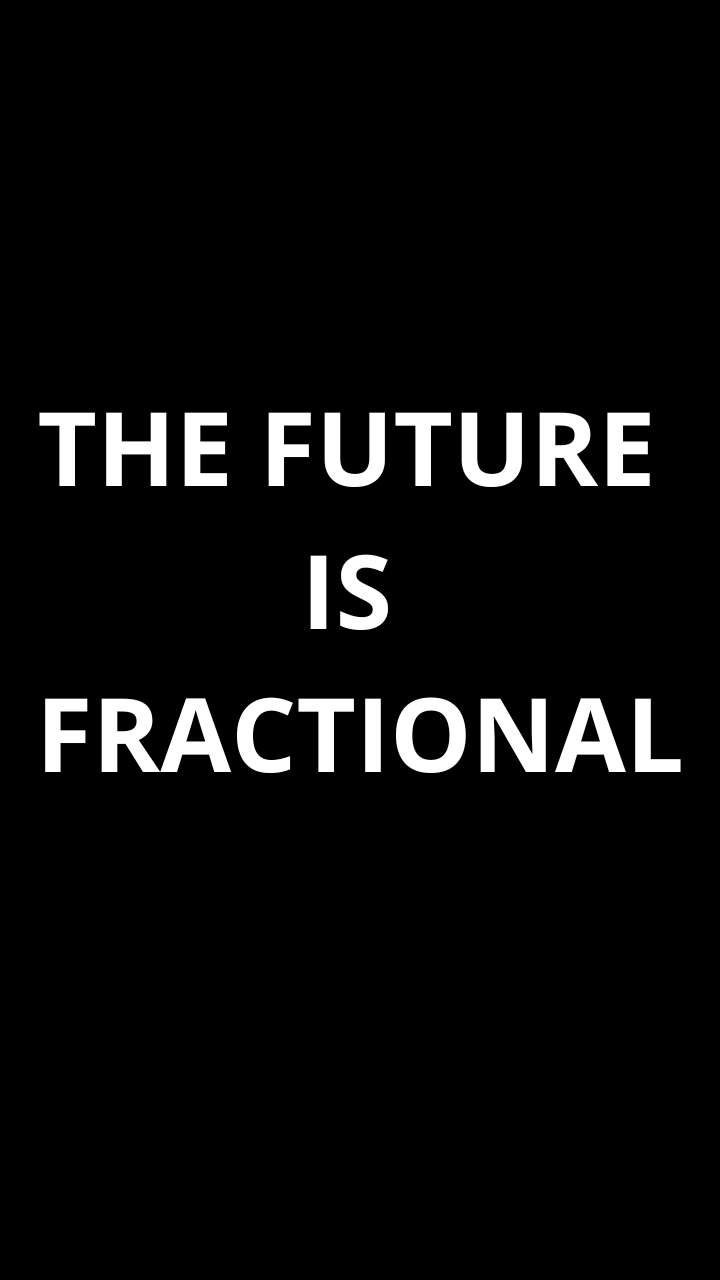Insights
The Future Is Fractional

May 06, 2025
Why Fractional?
Historically, companies would bring on a full-time Chief Marketing Officer (CMO) or Brand Strategist to shape their strategy, build teams, manage agencies, and guide creative direction. But in today's environment - where technology automates execution and AI can write a first draft or run a media buy - the need for ongoing, full-time senior oversight is shrinking. What remains essential is the strategic thinking, vision, and experience those leaders bring.
Fractional CMOs and brand strategists offer exactly that:
- Strategic clarity without the massive overhead.
- Fresh thinking drawn from multiple industries and verticals.
- A flexible model that scales with the business.
This isn’t about cutting corners. It’s about cutting waste.
Better for Businesses
For startups and scaling companies, hiring a full-time CMO or brand lead can be premature and expensive. Fractional leadership allows them to tap senior experience early, without the full-time commitment. For established brands, a fractional role can fill gaps, accelerate specific projects, or lead transformation efforts without adding another executive to the payroll.
It’s a lean, smart approach that gives companies access to top-tier talent they might not otherwise afford, on a cadence that suits their needs.
Better for the Strategist
The benefits aren’t just on the client side. For the practitioner fractional opens up a more diverse, enriching, and sustainable career path.
Instead of being locked into one brand’s cycle for years, fractional leaders engage across sectors, absorbing new challenges, solving different problems, and continuously sharpening their craft. This diversity of experience becomes a superpower, and clients benefit from broader insights and tested frameworks.
It also offers more autonomy and work-life balance, something increasingly valued by seasoned professionals who want to work smarter, not just harder.
The Human Edge in a Tech-Driven World
AI is changing the game. Automation is doing more. But strategy still needs people, especially those with pattern recognition, intuition, and the ability to align a brand’s internal culture with its external promise.
That kind of leadership can’t be scaled by software or outsourced to a tool. But it can be delivered more efficiently, more flexibly and more powerfully through a fractional model.
In Summary
The future of marketing leadership isn’t less, it’s leaner, smarter, and fractional. Businesses get what they need, when they need it. Strategists build careers on variety, insight, and autonomy. And brand building becomes more agile than ever before.
Fractional is the future. And for those bold enough to embrace it, the future looks bright.
Ready to talk business?